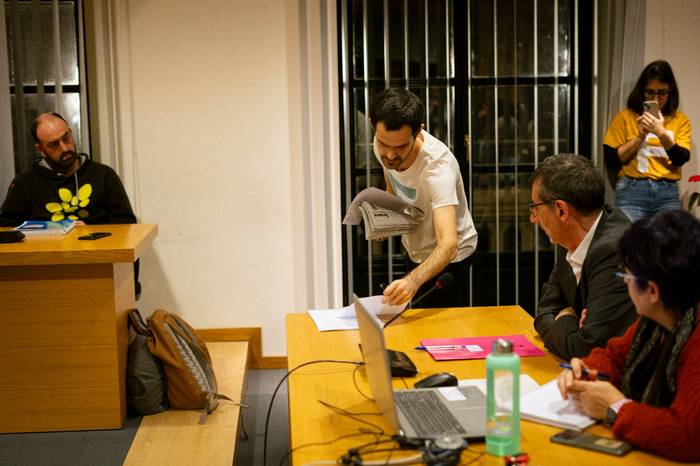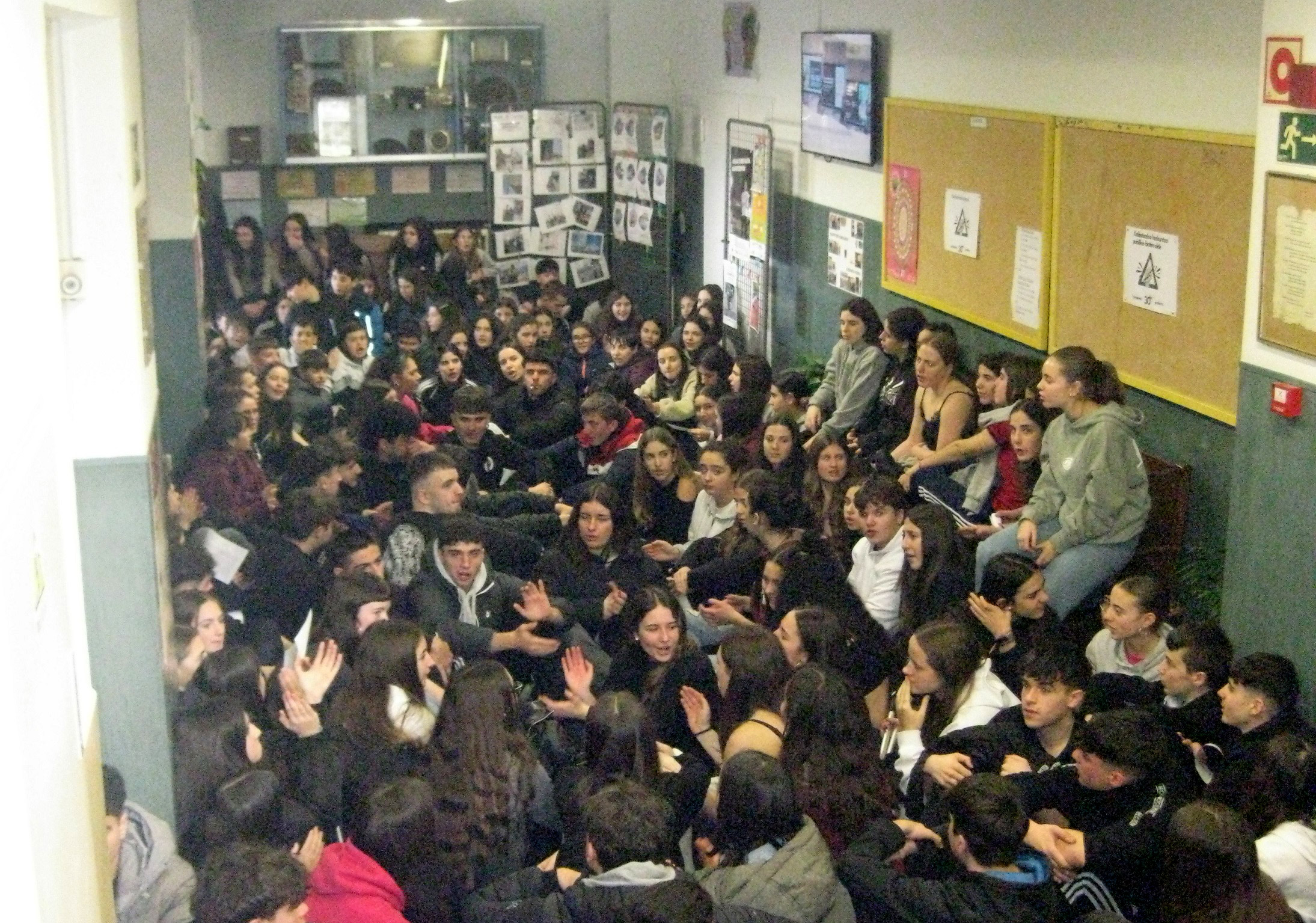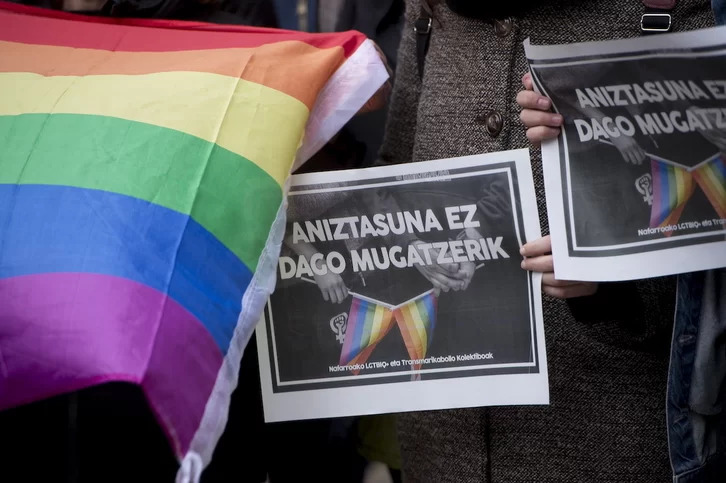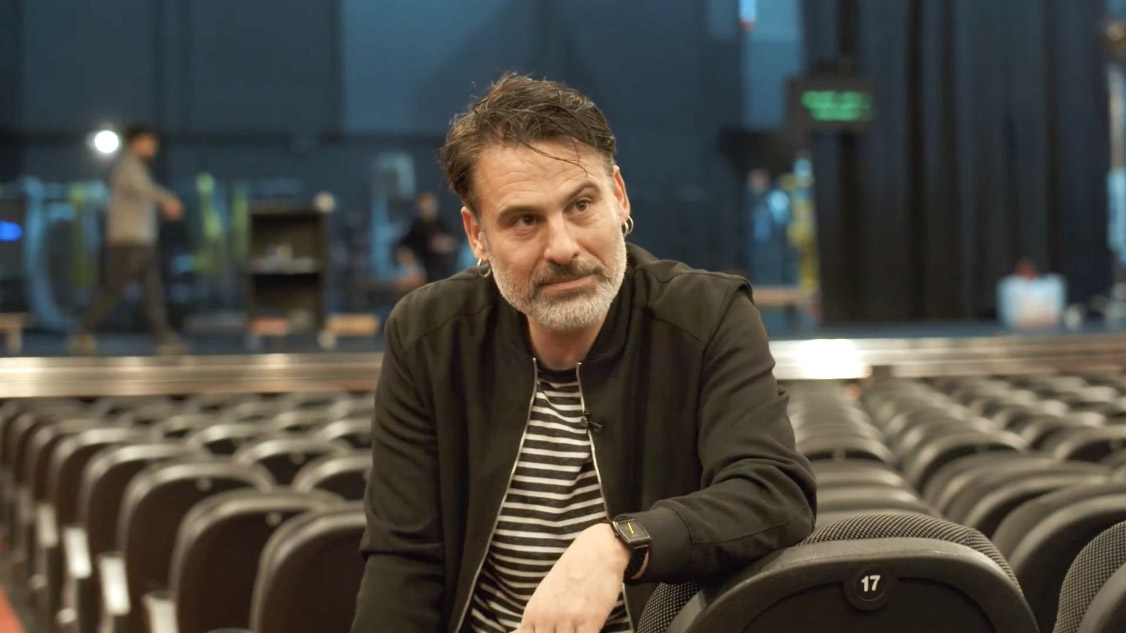The security business in question
- The UAE will spend nine million euros less than last year on the protection of threatened people, but the spending cut has nothing to do with the ETA truce, says Lakua. You can believe it or not, but spending on protecting people can become another element of the political debate. Those who say that the last steps of ETA are a lie are preparing the ground: no security restrictions, they say. But, hopefully, 2,000 escorts will be too many soon.
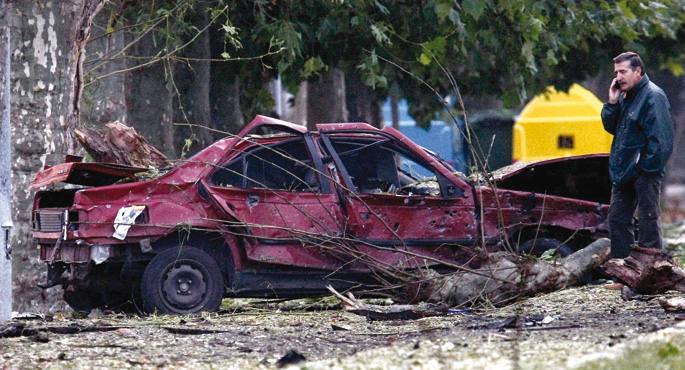
The protection service for those threatened by ETA, read the escort service, has declined slightly in recent months, coinciding with the suspension of its activity by the armed organization. However, there is no way to ensure that one thing is a direct consequence of the other, because no one who is responsible for it has publicly declared it so. “The reorganization of the protection service for those threatened”, to use the words of the Basque Government’s Interior Minister, Rodolfo Ares, came to light last summer, just days before ETA announced the “cessation of armed acts of aggression”. At a time when the rumors of a possible ceasefire were in full swing, it is hard to believe that those in charge of the Interior Department did not know that ETA was about to take this step. Despite this or not, in the first days of September, the Association of Basque Country Escorts denounced the withdrawal of the protection service to about 50 people – public officials, businessmen and journalists – which forced Rodolfo Ares to publicly say that the measure had nothing to do with a possible truce by ETA, but with a readjustment of the service. Three days later, the ETA statement was released and what was valid became reality.
Rodolfo Ares then added that those 50 people who were deprived of their escort did not have as much risk of being targeted by ETA as in the past, since they had long abandoned their former positions or other responsibilities. Since then, it has not been known that anyone else has been deprived of the escort, except for a few who have requested it. It is not possible to know the exact figures because few cases reach the media. Rodolfo Ares at the time demanded prudence and silence from those who had data on the protection service, and the request of the counselor seems to have been considered. José María Ruiz Urchuegui, the former president of Adegi, sent an open letter in October to the head of the Interior Ministry, stating that he would renounce his escort from now on. Shortly after, the newspaper Público said that this type of decision is not so rare, citing private security and border guard companies as the source of this information. Always according to these sources, the demands of walking without escort have always been constant and it is not possible to say - at least not in the autumn of last year - that the new political scenario has increased in number.
Reduction yes, but scope?
In short, it can be said that the use of escort services has not been drastically reduced since ETA declared a ceasefire. And when we talk about escort services, we are mainly talking about private security companies. One of the sources on these issues is the escorts themselves; they have countless forums on the Internet. In one of them we can read that in the Southern Basque Country in 2009, 1,492 people needed escort care, 86% of whom received this service from private companies. The estimated budget for these companies for 2011 is €88 million. Nine million less than last year.
In November, when he presented his department’s budgets to the Basque Parliament’s Interior Committee, Rodolfo Ares reiterated that the reason for the reduction was not the ceasefire of ETA – which was already public – but the need for a more adequate use of resources. I mean, we're in crisis. In particular, the price has been taken into account in the competition for escort services, as the member of the commission, Mikel Martínez (PNV), explains to us, and as can be deduced from the words of Ares when reading the minutes of that meeting, although the counselor does not speak so clearly. Martínez tells us that all companies have adjusted their prices in their offers.
Goodbye to a big business
The curious thing is that, as the jealous Member of Parliament has pointed out to us, more and more companies are coming to the competition. The times are changing, but the inertia, apparently not so fast; let’s not forget that the Basque Country has been an excellent business area for private security companies since ETA publicly declared that all the councilors of the PP and PSE, among others, would be the target of their actions. For many years there have been companies offering escorts in foams, although –we have resorted to Internet forums– the balance of workers who were doing so, about 2,000 according to data from 2009, has not had pleasant working conditions. Now a serious crisis is about to erupt in the sector and the dismissals of workers have already begun. If the process started with the January document of ETA goes well, the business will collapse, as it once flourished. We would return to the situation of the early 1990s in terms of security: the police would be enough to meet the protection needs of public officials, as in any other country.
Not a single step back
This is a panorama that anyone can imagine in the not too long term. But at this point it seems clear that some will try to extend this deadline. The great Spanish parties, especially the PP, and some sectors close to them, have repeatedly proclaimed that we should not trust the declarations of ETA, that we should be vigilant, that the security measures should not be watered down in any way. The same message is used by the heads of the security companies, the police... Even those who do escort work: in the forums they speak badly of the pattern, but on the other hand they emphasize the need for their task, using a discourse full of ideology. So it's not all business. Thus, public spending on escorts can be another component of the political struggle. A significant reduction in security spending would be seen as a step backwards in the “fight against terrorism” by sectors that do not want progress in the peace process.
“In any case,” says Mikel Martínez, “there are several readings in this area. On the one hand they say what the political representatives say, because that is their strategy. On the other hand, there is a security problem. I mean, I can understand the position of people who have been protected for a long time, day and night, if they suddenly run out of that protection without knowing for sure that all this is over. Some have already complained that, without fully withdrawing their support, they have been reduced. Some of those who had two escorts now have only one, and some of those who had only one have been stripped of that, and receive only contraceptive service.”
Could there be budget cuts this year?
To illustrate how this issue will evolve in the coming years, it will be interesting to see what this budget of 88 million in 2011 is at the end of the year. Martínez reminds us that the amount of money that is provided for the protection of people is very variable, even within the year: “It is a well-known fact, and it has happened many times, that depending on the evolution of the situation, we have to put a lot of money in the middle of the event.”
When Martínez refers to the evolution of the situation, it means that often ETA, by word or action, has put in its spotlight a sector that until then had been free of this threat. This has forced them to step up their protection measures and therefore spend more money. Could it be the opposite, or in other words, would it be legitimate to use part of the 88 million for other tasks as the current position of ETA is consolidated?
88 milioi eurokoa da 2011n pertsonen babeserako aurreikusita dagoen gastua, baina kopuru hori beste partida handiago baten zatia da. Izan ere, EAEko Herrizango Sailak segurtasun-enpresekin egindako azken kontratuak hamazortzi hilabeteko iraupena du, 2010, 2011 eta 2012 urteetan banatua.
2010eko martxoan egin zen publiko, Ares sailburuaren agindu baten bitartez, zein enpresari emango zitzaizkien zerbitzuok, hala nola lehiaketaren xehetasunak. Hemeretzi enpresa aurkeztu ziren guztira, eta zazpik lortu zuten kontraturen bat. Horietan, Casesa nabarmentzen da, kontratu osoaren %35 inguru eraman baitu. Guztira, 144 milioi euroko gastua (gehi BEZa) zegoen aurreikusita aipatutako epealdirako, baina azkenean %7an murriztu zen: 135 milioi. Rodolfo Aresek garbi utzi nahi izan zuen murrizketak ez ziola zerbitzuaren kalitateari eragingo, eta bere sailak egindako negoziazio onaren emaitza zela. “Segurtasun maila orain arte bezala mantenduko da “, esan zuen. Ordurako, ETA su-etenean zegoen.
Zerbitzua ez da trinkoa, hamabi lote edo sortatan banatuta dago. Berez lau dira, eta horietako bakoitza EAEko hiru probintzietarako lehiatzen da. Aldi berean, lote bakoitzerako lau enpresa kontratatu daitezke.
Lau sortak hauek dira: epaile eta magistratuen babesa; PPko hautetsi eta politikarien babesa; PSOE-EEko hautetsi eta politikarien babesa; eta gainerakoak. Laugarren multzo horretan sartzen dira beste alderdietako hautetsiak, ETAk mehatxatutako gainerako pertsonak eta genero-indarkeriaren biktimak.
Vagina Shadow(iko)
Group: The Mud Flowers.
The actors: Araitz Katarain, Janire Arrizabalaga and Izaro Bilbao.
Directed by: by Iraitz Lizarraga.
When: February 2nd.
In which: In the Usurbil Fire Room.


















